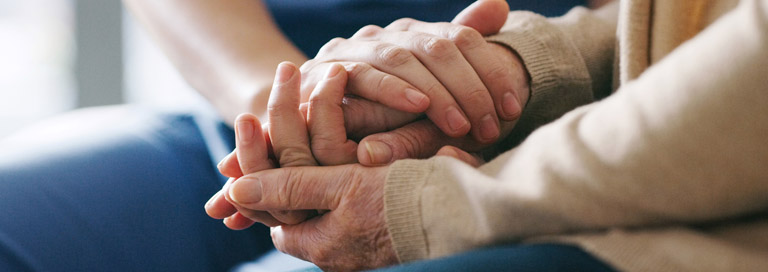There is an epidemic going on in the country that is damaging the health of vulnerable Americans.
But it’s not what you think…
I’m talking about the devastating effect that “Covid hysteria” – created by the mainstream media and Big Tech, combined with the ongoing confusion coming from the CDC – is having on the mental health of millions of Americans.
Like my patient Andrea…
Andrea came to my clinic looking for a natural way to treat her anxiety. She’d been plagued with symptoms — irritability, agitation, stress, insomnia, and panic attacks — for months.
Andrea isn’t alone in how she’s feeling. A recent survey found that Americans’ anxiety levels have increased dramatically in the last two years — with almost 80% of people saying they feel more stressed today than a year ago.1
And that increase follows on the heels of a 36% spike from the year before.2
Andrea knew she needed help getting her anxiety under control. But one thing she was adamant about was not taking Big Pharma’s prescription drugs.
I get it. These anti-a
nxiety pills are marketed as safe and effective. But they’re not…They cause negative side effects, ranging from mild to downright dangerous. Some of these effects include:
- Confusion
- Memory loss
- Decreased sex drive
- Dizziness
- Hallucinations
- Blurred vision
- Slurred speech
- Increased anxiety and depression
And in some cases, it’s even worse…
Researchers followed almost 35,000 people who filled prescriptions for these pills for three years. After excluding factors like smoking, age, and alcohol, they discovered a horrifying fact:
People who took these drugs had more than double the risk of death than those who didn’t.3
Stay away from Big Pharma’s deadly drugs
That’s why I always suggest natural remedies that have been proven safe and effective for hundreds of years. I’ve recently started recommending a natural oil that dates back more than 6,000 years.
It comes from the Cannabis sativa plant — or CBD.
For decades, anecdotal evidence of CBD’s effectiveness treating anxiety was all we had. That’s because until reversing course in 2018, the federal government classified all cannabinoids as a schedule 1 drug. As a result, very little research into CBD could be done in this county.
But, we’re finally beginning to see solid research being conducted on this 6,000-year-old natural therapy.
Like this 2019 study published in the Journal of Integrative and Complementary Medicine…
Researchers tracked a group of patients with PTSD, one of the most debilitating kinds of anxiety. After supplementing with CBD for eight weeks, 91% reported that they experienced reduced symptoms after taking the oil.4
In a study published in 2020, researchers found that just 12-37 mg of oral CBD a day reduced anxiety symptoms and sleep disturbances in a patient with extreme PTSD.5
In another study, researchers asked 24 people who suffered from Social Anxiety Disorder (SAD) to speak in front of a large audience.
At different times during the speech, they measured participants’ blood pressure, heart rate and skin conductance. Then they compared the anxiety levels of those who took CBD to those who received a placebo or nothing at all.6
They found that those who “took the hemp reported significantly less anxiety.”
Although research is still in the early stages, scientists think they’ve figured out how CBD works to relieve stress. It works by targeting and boosting the signal of 5-HT1A serotonin receptors on brain cells. Serotonin helps regulate mood and is associated with feelings of well-being.
CBD also increases gamma-aminobutyric acid, or GABA. That’s a brain neurotransmitter that produces a calming effect when amplified.
Get The Biggest Benefit From Your CBD
I’ve had patients tell me they don’t feel any effects after taking CBD. That’s because most CBD doesn’t reach its intended destination: the cell receptors that make up the body’s endocannabinoid system. Here’s what I tell them:
-
- Use an oral spray. This is the most effective way of increasing CBD’s bioavailability. That’s because it’s a quicker, more direct route to the bloodstream, and it avoids being broken down by the liver first, which lowers absorption.
- Take it with fat. A study from the University of Minnesota found that patients who ate high-fat foods after taking CBD increased their absorption by 4-14 times. To get the maximum benefits of CBD without eating a big meal, consider taking it with a teaspoon of coconut oil.
- Buy from a reputable manufacturer. As you know, CBD-infused products are everywhere. But, lab tests have found many of these products contain very little or no CBD. That’s why it’s important to read the ingredient list and avoid products containing corn syrup, GMOs, trans fats, or artificial additives.
- Check the concentrations. You want to know how much CBD is actually in the product. To work this out, you can look at the milligrams (mg) of CBD, which should be clearly listed on the label. Don’t be misled by the “total volume” of oil. The milligrams of CBD are what counts. The right dosage all depends on your health and your body. Experiment to find out what works best for you.
To Your Good Health,

Al Sears, MD, CNS
References:
1. American Psychological Association. “APA: U.S. Adults Report Highest Stress Level Since Early Days of the COVID-19 Pandemic” 2021. Accessed January 12, 2022.
2. American Psychiatric Association. Public Opinion Poll – Annual Meeting 2017.
3. Welch S, et. al. “Effect of anxiolytic and hypnotic drug prescriptions on mortality hazards: Retrospective cohort study.” BMJ 2014;348:g1996.
5. Elms L, et al. “Cannabidiol in the Treatment of Post-Traumatic Stress Disorder: A Case Series.” J Altern Complement Med. 2019 Apr;25(4):392-397.
5. Hindocha C, et al. “The Effectiveness of Cannabinoids in the Treatment of Posttraumatic Stress Disorder (PTSD): A Systematic Review.” J Dual Diagn. Jan-Mar 2020;16(1):120-139.
6. Bergamaschi MM, et al. “Cannabidiol reduces the anxiety induced by simulated public speaking in treatment-naïve social phobia patients.” Neuropsychopharmacology. 2011;36(6):1219-1226.

